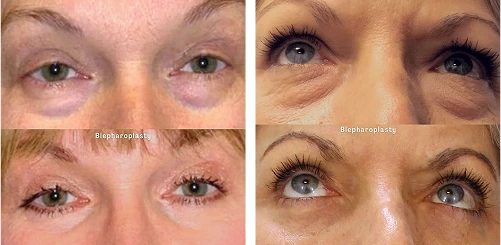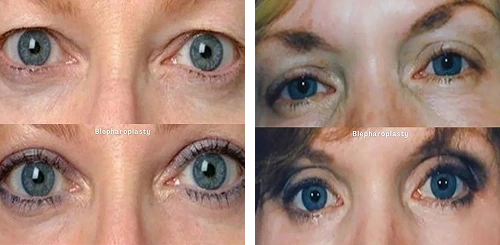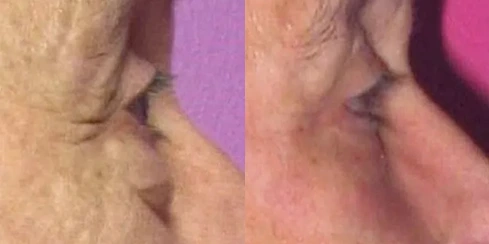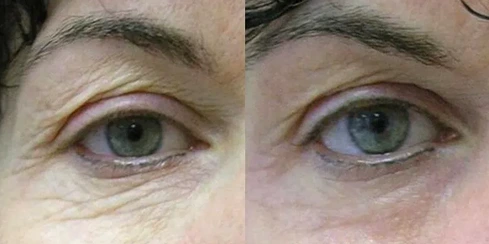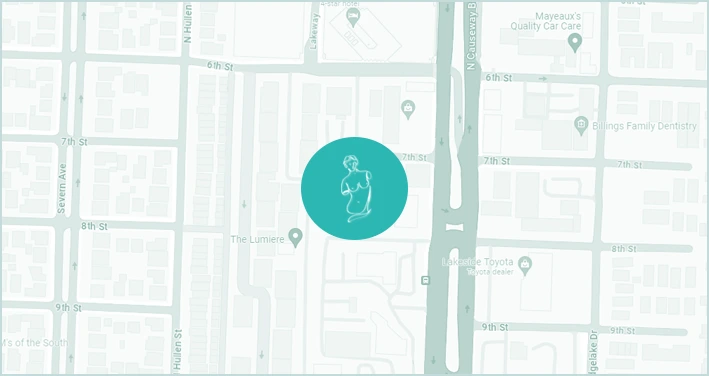What Is Blepharoplasty and How Does It Impact the Body?
Common Side Effects of Blepharoplasty
Like any surgical procedure, blepharoplasty comes with a set of expected side effects. While most patients recover without complications, some may experience lingering symptoms, including fatigue. Understanding the common side effects of eyelid surgery can help differentiate between normal healing and potential concerns.
Immediate Postoperative Side Effects
These effects are temporary and typically resolve within a few weeks:
- Swelling and bruising:
The most common post-surgical symptoms, peaking around 48 hours and gradually subsiding.
- Tightness around the eyes:
A pulling or stiff sensation as the tissues adjust and heal.
- Blurry vision:
Often due to swelling, eye drops, or protective ointments used during recovery.
- Watery or dry eyes:
Changes in eyelid position may temporarily disrupt tear distribution.
- Mild discomfort or pain:
Usually managed with over-the-counter pain relievers or prescribed medications.
Short-Term Fatigue After Blepharoplasty
- The body’s healing response:
- Anesthesia effects:
- Medication side effects:
- Sleep disturbances:
Potential Long-Term Side Effects
- Eye strain and fatigue:
Adjusting to changes in eyelid structure can increase visual effort.
- Chronic dry eye syndrome:
- Headaches and muscle tension:
- Emotional and psychological impact:
Chronic Fatigue After Blepharoplasty: Myth or Reality?
The connection between blepharoplasty and chronic fatigue is not widely documented in medical literature, yet some patients report experiencing prolonged exhaustion long after their initial recovery. This raises the question: Is chronic fatigue a real consequence of eyelid surgery, or is it a temporary effect of the healing process?
What Is Chronic Fatigue?
- Extreme exhaustion lasting more than six months
- Difficulty concentrating (brain fog)
- Muscle weakness or body aches
- Unrefreshing sleep
- Increased sensitivity to stress and physical exertion
Possible Links Between Blepharoplasty and Chronic Fatigue
- Prolonged immune response:
In some cases, post-surgical inflammation persists longer than expected, placing a strain on the body’s energy reserves.
- Neuromuscular adaptation:
Eyelid muscles play a key role in vision and facial movement. Changes in eyelid position may lead to excessive muscle use, contributing to fatigue.
- Persistent dry eyes and visual strain:
When eyelid function changes, the eyes may struggle to maintain proper lubrication, leading to discomfort and increased energy expenditure for visual tasks.
- Sleep disturbances:
Difficulty closing the eyes completely or adjusting to new eyelid positioning can interfere with sleep quality, leading to daytime fatigue.
- Emotional and psychological factors:
Postoperative stress, anxiety, or dissatisfaction with surgical results can lead to mental exhaustion, further compounding feelings of fatigue.
While chronic fatigue after blepharoplasty is not a common side effect, these factors suggest that, for some patients, it may be a legitimate concern requiring medical attention.
Possible Causes of Chronic Fatigue After Blepharoplasty
While fatigue is common during the early stages of blepharoplasty recovery, some patients experience persistent exhaustion that lasts for weeks or even months. Several factors may contribute to chronic fatigue after blepharoplasty, ranging from physiological responses to underlying medical conditions.
Post-surgical stress and immune response
- Any surgery, including blepharoplasty, triggers an immune response, leading to inflammation and increased energy consumption.
- The body prioritizes tissue repair, diverting resources away from normal energy production.
- If inflammation remains for an extended period, it can contribute to post-surgical fatigue syndrome, a condition seen in some patients after elective procedures.
Effects of anesthesia on the nervous system
- General anesthesia and sedatives can affect brain function, leading to cognitive fog, dizziness, and prolonged fatigue.
- Some individuals are more sensitive to anesthesia and may take weeks to fully metabolize the drugs.
- Anesthesia affects the autonomic nervous system, which controls energy regulation and can contribute to sluggishness after surgery.
Sleep disturbances and poor restorative sleep
- Swelling, discomfort, and changes in eyelid positioning can make it difficult to achieve restful sleep.
- Some patients experience difficulty closing their eyes fully, leading to dryness and irritation at night.
- Sleep deprivation is a well-documented cause of chronic fatigue, affecting both physical and mental well-being.
Reduced oxygen flow and circulation issues
- Swelling around the orbital area may temporarily restrict blood circulation, reducing oxygen delivery to tissues.
- Reduced oxygenation can cause muscle weakness, dizziness, and sluggishness, making daily activities more exhausting.
- Patients with pre-existing circulation issues may be at higher risk of post-surgical energy depletion.
Mental and emotional fatigue
- Postoperative anxiety, depression, or dissatisfaction with surgical results can lead to emotional exhaustion.
- Stress-related fatigue is common in patients undergoing cosmetic procedures, as adjusting to physical changes takes time.
- The psychological burden of surgery complications, such as dry eyes or asymmetry, may amplify mental fatigue.
Medication side effects
- Painkillers, antibiotics, and anti-inflammatory drugs may cause drowsiness, nausea, or sluggishness.
- Some medications, especially opioids, can disrupt sleep cycles and contribute to prolonged postoperative fatigue.
How to Prevent and Manage Chronic Fatigue After Blepharoplasty
While fatigue is a natural part of the healing process, prolonged exhaustion after blepharoplasty can interfere with daily life. Fortunately, there are several strategies to help manage and prevent chronic fatigue after eyelid surgery.
Pre-surgery preparation
- Optimizing overall health before surgery can improve recovery and reduce fatigue.
- Staying hydrated and maintaining a nutrient-rich diet helps the body handle surgical stress more effectively.
- Getting adequate sleep in the weeks leading up to the procedure supports immune function and energy levels.
Post-surgical recovery tips
- Resting during the initial recovery phase allows the body to allocate energy to healing.
- Avoiding excessive screen time reduces eye strain, which can contribute to fatigue.
- Using cold compresses helps minimize swelling and promotes better circulation, preventing sluggishness.
Managing stress and anxiety
- Relaxation techniques, such as meditation and deep breathing, can reduce the psychological burden of surgery.
- Speaking with a mental health professional can help address any anxiety or emotional distress related to the procedure.
- Keeping realistic expectations about recovery time can prevent frustration and mental exhaustion.
Physical therapy and gentle exercises
- Light stretching and short walks can improve blood circulation and reduce fatigue.
- Gentle facial massages, as recommended by a surgeon, may help with muscle relaxation and tension relief.
- Avoiding strenuous activities until fully healed prevents unnecessary energy depletion.
Nutrition and hydration
- Drinking enough water supports the body’s natural detoxification processes and helps combat fatigue.
- A diet rich in protein, vitamins, and antioxidants promotes faster tissue repair and energy production.
- Limiting caffeine and sugar intake prevents energy crashes that can worsen postoperative fatigue.
Supplements and medications
- Omega-3 fatty acids and vitamin D may help reduce inflammation and support recovery.
- Some patients benefit from taking melatonin to regulate sleep patterns disrupted by post-surgical discomfort.
- If fatigue persists beyond the normal recovery period, a doctor may recommend blood tests to check for deficiencies or underlying conditions.
When to Seek Medical Advice for Chronic Fatigue Post-Blepharoplasty
While some level of fatigue is expected after blepharoplasty, persistent or worsening exhaustion may indicate an underlying issue. Recognizing when to seek medical advice is crucial for ensuring a safe and effective recovery.
Signs that fatigue may be abnormal
- Fatigue lasting longer than eight weeks with no signs of improvement
- Difficulty performing daily tasks due to excessive tiredness
- Severe headaches, dizziness, or brain fog that interferes with concentration
- Muscle weakness or body aches unrelated to the surgical site
- Sleep disturbances that persist despite using recommended recovery techniques
When to consult a doctor
- If fatigue worsens over time instead of gradually improving
- If other symptoms develop, such as chronic dry eyes, vision changes, or persistent pain
- If you experience depression, anxiety, or emotional distress that affects your quality of life
- If you suspect a reaction to medications prescribed during recovery
Potential medical interventions
- Blood tests to check for anemia, thyroid imbalances, or vitamin deficiencies
- A neurological exam to assess nerve function and muscle activity
- Adjustments to post-surgical care, including eye drops, physical therapy, or medication changes
Chronic fatigue after blepharoplasty is rare, but if symptoms persist, consulting a healthcare provider ensures that any underlying issues are addressed promptly.
Conclusion: Understanding the Risks and Recovery Process
Blepharoplasty is an effective procedure for rejuvenating the eyes and improving vision, but like any surgery, it carries potential risks. While chronic fatigue after blepharoplasty is not commonly reported, some patients experience prolonged exhaustion due to post-surgical stress, inflammation, sleep disturbances, and muscle strain. Understanding these factors can help patients navigate their recovery more effectively.
For most individuals, fatigue gradually improves within a few weeks as the body heals. However, if exhaustion persists beyond two months, it may indicate an underlying issue such as dry eye syndrome, nerve strain, or emotional distress. Addressing these concerns early through proper post-surgical care, medical evaluation, and lifestyle adjustments can significantly enhance recovery outcomes.
When to Consult an Expert
If you are struggling with unexplained fatigue, prolonged discomfort, or vision-related issues after blepharoplasty, seeking professional guidance is essential. At Aesthetic Surgical Associates, Dr. Metzinger and his team provide personalized post-operative care to support a smooth and successful recovery.
If you are experiencing persistent fatigue after eyelid surgery, schedule a consultation with Dr. Metzinger. A professional assessment can help identify the cause and provide tailored solutions for a faster, healthier recovery.


